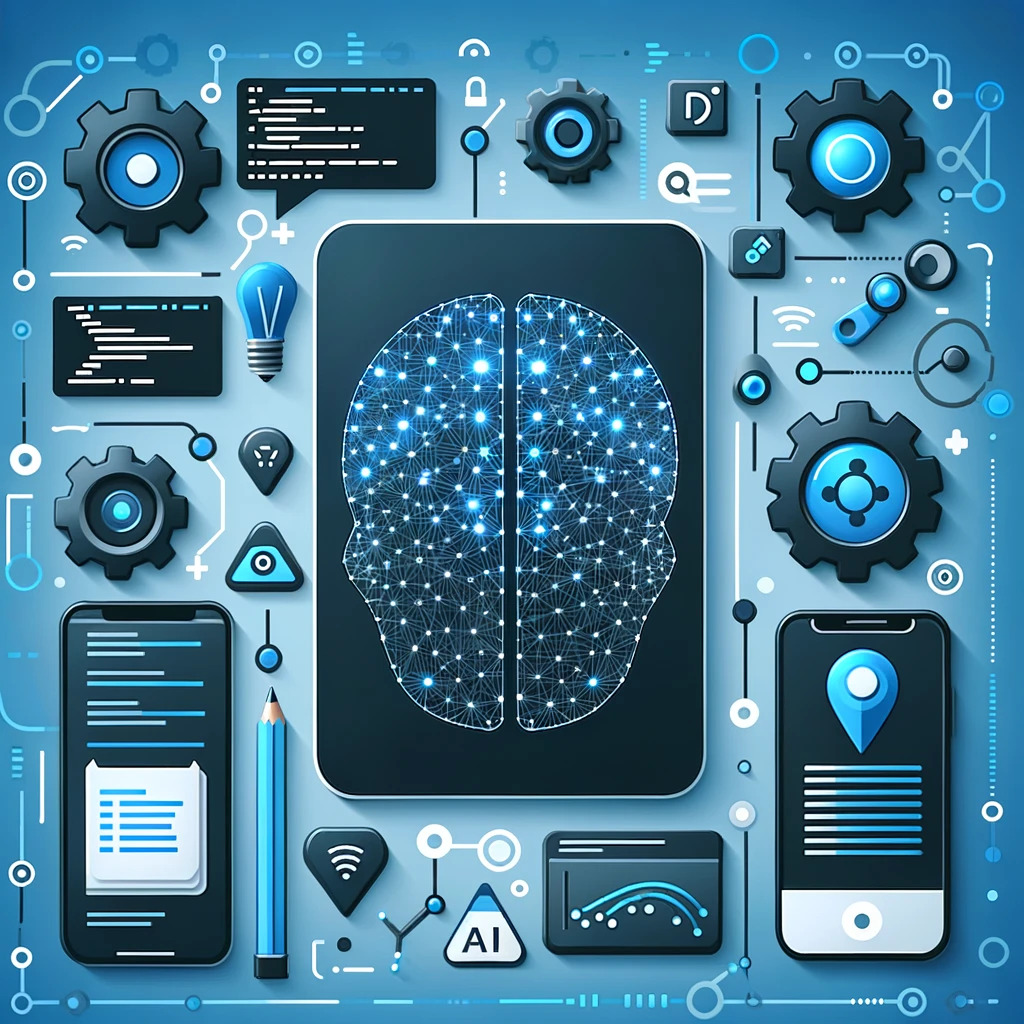
In the ever-evolving world of app development, staying ahead of the curve isn’t just a benefit—it’s a necessity. This is where artificial intelligence (AI) comes into play, transforming the landscape of how apps are designed, developed, and deployed. Let’s dive into how AI is revolutionizing this field, making the lives of developers easier and the outcome for businesses more profitable.
Accelerated Development Cycles
One of the most significant impacts of AI in development is the acceleration of development cycles. Traditionally, coding is a meticulous process, often bogged down by repetitive tasks and the potential for human error. AI steps in as a powerful ally by automating these repetitive tasks. From generating code bases to sorting through databases, AI tools enable developers to focus more on creating unique features and enhancing user experience rather than getting stuck on routine coding tasks.
For instance, platforms like GitHub have introduced Copilot, powered by AI, which assists in writing code by suggesting whole lines or blocks of code. This not only speeds up the coding process but also helps in reducing potential errors, making the process smoother and faster.
Enhanced Personalization
In today’s market, personalization is key for user retention. AI’s ability to analyze large volumes of data in real-time allows developers to create more personalized user experiences. By understanding user behavior, preferences, and engagement patterns, AI can help tailor app content, notifications, and functionalities to individual users. This level of personalization not only enhances user satisfaction but also boosts the overall effectiveness of the app.
Predictive Analysis and Maintenance
AI’s predictive capabilities are nothing short of revolutionary. By analyzing how users interact with an app, AI can predict future behavior and potentially highlight areas where the app might fail. This preemptive insight allows developers to fix issues before they become problematic, ensuring smoother operations and better reliability. Moreover, predictive analytics can guide developers on where to focus future updates and improvements, aligning closely with user expectations and demands.
Quality Assurance
Testing is a crucial phase in app development, often consuming considerable time and resources. AI significantly impacts this area by automating the testing processes. AI-powered testing tools can quickly identify bugs, assess software performance, and ensure that the app’s interface is intuitive and user-friendly. This not only reduces the time required for testing but also enhances the overall quality of the app.
Smart Assistance and Support
AI has also redefined the way support is provided within the development cycles. AI-powered chatbots and virtual assistants can handle user queries in real-time, providing immediate assistance and improving user satisfaction. For developers, AI-driven analytics tools offer insights into how users are interacting with these support features, which can be invaluable in refining the app’s functionality and support system.
The Future of App Development with AI
As we look to the future, the integration of AI in development cycles is set to deepen. With advancements in AI technologies, we can anticipate more sophisticated tools that not only streamline development processes but also open new avenues for creativity and innovation in app design.
While AI’s role in enhancing app development is clear, it’s important to use these tools wisely. Balancing the use of AI with the irreplaceable creative and strategic input of human developers will be key to developing successful, innovative apps that stand out in the market.
In conclusion, AI is not just a tool; it’s a game-changer in the development industry, offering myriad benefits that help businesses keep pace with technological advancements and ever-changing consumer demands. Whether it’s through speeding up development cycles, enhancing user experience, or ensuring high-quality outputs, AI is undoubtedly reshaping the way apps are brought to life.
For more articles like this, make sure to take a look at our knowledgebase blog at PieceX.
